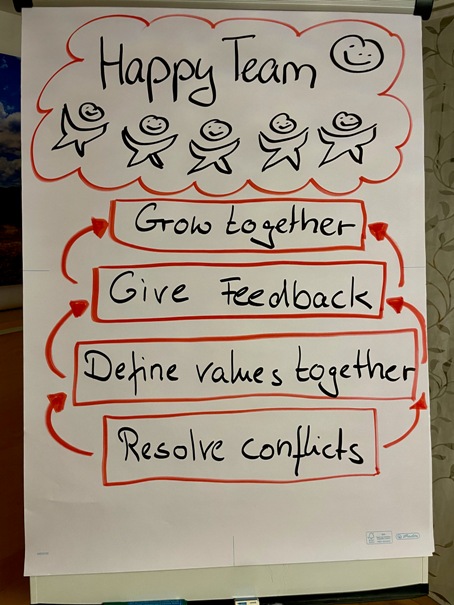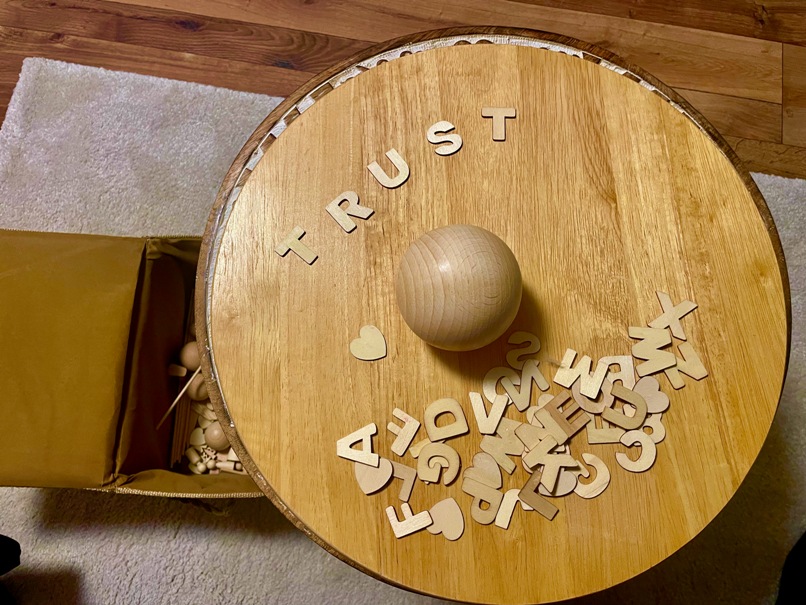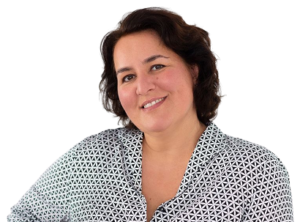Absence management for you and your team
Mediation, coaching & conflict moderation in Berlin – for you and your team
- Is a high sickness rate among your employees costing you a lot of time, money and nerves?
- Have you and your team been challenged by frequent redundancies in the last 1-2 years?
- You know that the lack of team members is disrupting processes on many levels?
- Are tensions in the team due to the additional workload, among other things, affecting cooperation?
The issue of absenteeism is very complex and we can’t turn all the screws. But there are some starting points that are worth taking a closer look at.
Which topics play a role in the area of leadership?
When it comes to ‘high sickness rates’, it is always important to also reflect on your own leadership and everything that goes with it:

- What promotes a good atmosphere in the team, what rather doesn’t?
- Are you being a real leader, are you taking decisions and are you giving regular, honest feedback, even if something is not going so well?
- Or would it do you good to reflect on your management style with a sparring partner?
- Are you aware of your own values and your inner drivers?
- Do you have a concrete vision of how it should be?
- What example do you set for your employees and how do you want to be perceived as a manager?
In individual coaching sessions, you can look at these and other questions together with me and develop measures for yourself and your team.
A look at the structures
A look at the structures can also reveal a great deal:
- Are all my employees aware of the structures in the company or in your doctor’s office or team?
- Are the responsibilities clearly defined?
- Is everyone clear about his or her tasks and roles?
- Are there other ambiguities that lead to tensions within the team?
If the answers to these questions are worked out together with the team, there is more clarity and significantly fewer points of friction between employees.

What else could play a role in high absenteeism?
- Are your employees deployed according to their skills?
- Is it more of a feat of strength for some people to get the job done because they are sitting in the wrong place and thus losing more energy and performance every day?
- What role may your values play? Are they strengthening, supportive, guiding? Or are they rather energy thieves that need to be uncovered and transformed?
- Do you celebrate your successes together and show your appreciation?
- What can be done to improve health in terms of working conditions?
- Are there hidden or open conflicts in the team that are causing a lot of tension or even sick leave?
Break times, overtime, missed holidays, light, fresh air, noise levels, a basket of fruit for everyone are also topics that are worth taking a look at.
It makes sense for us to tackle many of the issues together with the team and you as a manager so that everyone is on board with new decisions and ideas. This is where team development or conflict moderation comes in.
Resolving tensions and conflicts
It is important and target-oriented to resolve existing tensions and conflicts in the team when there is a high sickness rate and an increased number of resignations. Because sometimes it is precisely this stress that stands in the way of health. At some point, the body simply says ‘I can’t do this anymore’.
- So what can be changed together with your employees to make things better for everyone?
- How can your employees take more personal responsibility for their own health and satisfaction?
- How can rituals of appreciation be developed together?
- How can a healthy feedback culture be established that helps to reduce tensions and avoid conflicts?
- What values are missing so that it can be a good collaboration for everyone?

In my view, it’s really about turning the groups that many managers work with today back into teams – despite working from home, which is no easy task – and adapting to the new, modern changes in the world of work together so that we can enjoy working together again and create a sense of togetherness. After all, people who enjoy going to work and work in a team with a sense of community do feel good. In small-talk conversations during the break, you can confidently talk about what is stressful at work or at home, receive support and encouragement – and at best even ideas for solutions. In this way, mutual trust can develop and ultimately the values of responsibility and fairness – e.g. am I so ill that I can’t go to work and others have to clear my desk or can I go to work after all and perhaps only do the most important things today with 60% commitment (or from my home office) – can really be put into practice.
There is no magic formula for dealing with absenteeism. But there are various starting points for optimising collaboration and, at best, reducing sickness absence.
I see myself as a development and sparring partner for managers and teams in change processes. My contribution to the various focal points of counselling consists, among other things, of introducing systemic questions, pointing out concrete options for action and supporting your decision-making process. All this in the certainty and my experience that solutions can ALWAYS be found without spending a lot of time analysing the content of the problem.
With just one click you may get more information on my website concerning the following topics:
Customer testimonials: Reduce sickness rates
“There were a lot of tensions in my team and working together was more than difficult. We struggled with a high sickness rate for a long time.
I described the situation in an individual coaching session and received helpful feedback from Mrs Kostadinowa on how to deal with the situation. She actually only accompanied our team for one morning. With her help, our structures were clarified, hierarchies were sorted out together and my colleague and I also received supportive feedback for us as managers. The next day, the atmosphere was really good and work was relaxed. This was maintained over the following months and the high sickness rate was resolved thanks to these measures.”
“I manage two companies and both within the team and between the two teams that are to work together in the future, the relationship was very tense and we had stressful phases with a high sickness rate. Thanks to Mrs Kostadinowa’s support, the situation changed within two months: the employees were able to resolve the tensions between them and both teams are now better able to approach each other and work together. Sick leave has decreased significantly.”
“In my team, which consists of 19 employees, there has been a high sickness rate over the last 1-2 years. So I decided to get support from Mrs Kostadinowa. At first, I thought we had to work with the team first and foremost. But I quickly realised in a one-to-one meeting that I also needed to change my management style. So we first had a few individual coaching sessions and then worked together with the team. I am very happy with the result. The atmosphere is good. Absenteeism has been reduced. If that changes again, I would work with Mrs Kostadinowa again at any time.”

